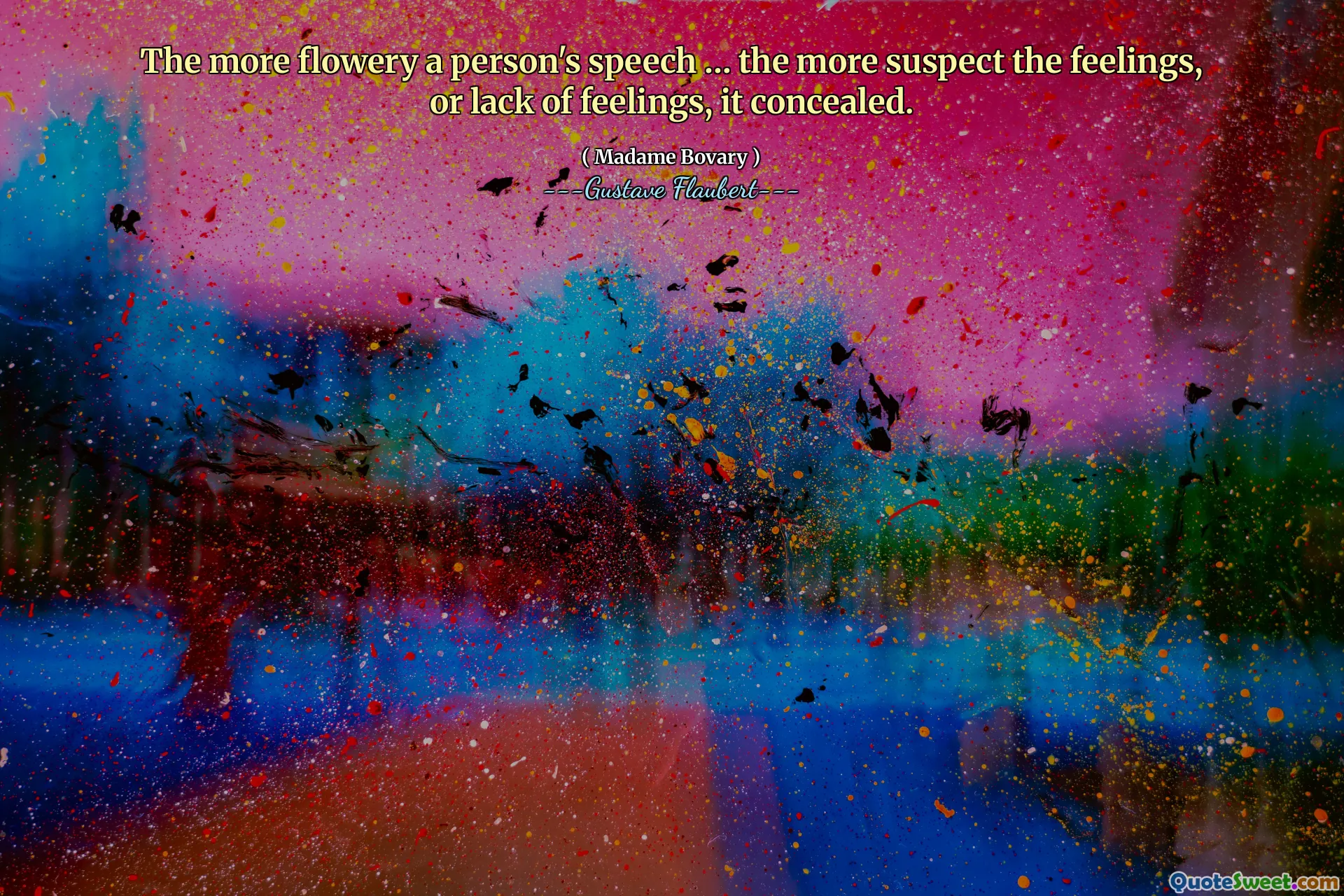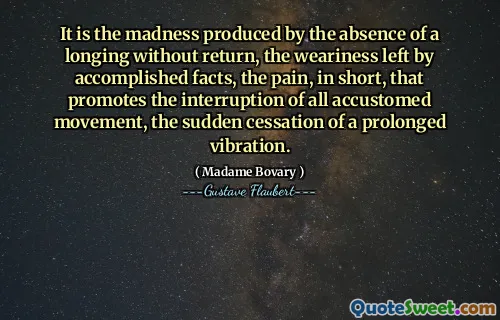
The more flowery a person's speech … the more suspect the feelings, or lack of feelings, it concealed.
This quote highlights a timeless truth about human communication and sincerity. When someone employs elaborate, ornate language or embellishments, it often acts as a smoke screen, obscuring their true emotions or intentions. In many contexts, verbosity and overly decorative speech can be tactics to impress, manipulate, or hide vulnerability. This phenomenon can be observed in social interactions, politics, and even literature, where characters or speakers may resort to flowery language to mask uncertainty or genuine sentiment. The underlying implication is that authenticity is often expressed simply and directly; excessive ornamentation may be a defensive mechanism or a sign of insincerity. From a psychological perspective, individuals who rely on elaborate rhetoric might be trying to project an image of confidence or superiority, while internally harboring doubt or fear. Conversely, those who communicate with straightforwardness often display a higher degree of genuine feeling and transparency. Recognizing this pattern can serve as a valuable tool in evaluating others' sincerity and motives. It raises important questions about the nature of authenticity in human interactions—whether beauty and complexity in speech override the importance of honesty, or if simplicity and clarity are the hallmarks of truthful, heartfelt communication. In a society where appearances and impressions are often prioritized, this quote encourages us to look beyond the surface and consider what is concealed beneath flowery words. Ultimately, it reminds us that true feelings tend to be conveyed with honesty and directness, whereas elaborate language may conceal unresolved emotions or even deception.











